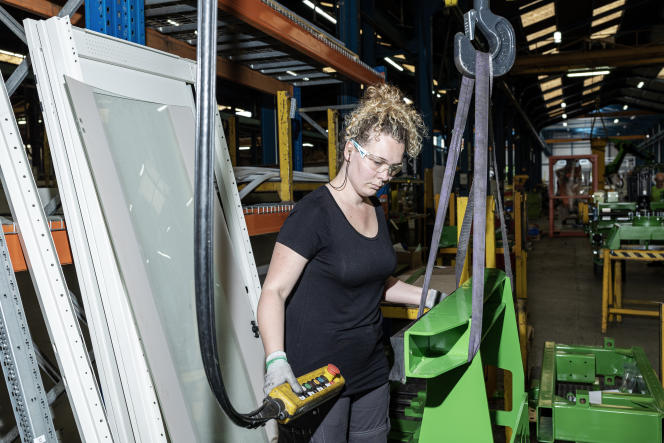Rising interest rates, consumption undermined by inflation, stagnating purchasing power: “lack of impulse” demand, French growth will be modest in 2023. It should not exceed 0.6% over the year as a whole, after 2.5% in 2022, according to forecasts drawn up by INSEE and published on Thursday 15 June 2023. More specifically, after 0.2% in the first quarter, growth should be 0.1% in the second and third quarters, and 0.2% in the fourth quarter of 2023.
France would thus escape, but only slightly, from the recession which is officially hitting the euro zone, where gross domestic product (GDP) fell by 0.1% in the fourth quarter of 2022 and the first quarter of 2023, according to indicators published by Eurostat Thursday 8 June. It is doing better than Germany, more exposed to the war in Ukraine, and which should experience a decline in GDP of 0.3% this year, according to figures cited by INSEE. But less well than its neighbors to the south, since Spain is moving towards growth of 2%, after 5.5% in 2022, and Italy of 1.3%, after 1.9%.
A small light in a very gloomy picture, inflation has indeed begun to ebb. For the first time in a year, the rise in consumer prices in France has come down from the plateau where it was hanging, at around 6%. Thanks to lower prices for petroleum products, and the slowdown in other commodities, inflation slowed to 5.1% in May.
Lower consumption
At the end of the year, the rise in prices over one year would be limited to 4.4%, according to INSEE. A sharp lull is expected on the food shelves: at 7.4% at the end of the year, the rate of price increases should be halved compared to 2022. But all the same, the shopping basket will have soared by 19 % over the last two years.
For all goods and services, the average price increase in France over two years is 15%, compared to 20% for our German neighbours. If the decline in inflation does not mean that prices will fall, consumption should do a little better. “Households would gradually stop reducing their food purchases”says Olivier Simon, head of the economic summary division of INSEE.
This will not be enough to compensate for a bad start to the year: 2023 will result in a drop in consumption of 0.2%, after a rise of 2.1% over the whole of 2022. Paradoxically, the rise in prices n has not encouraged households to dip into their savings to maintain their lifestyle: the savings rate, underlines INSEE, remains at 18% of disposable income, particularly high compared to the long-term average, around 15%.
You have 49.89% of this article left to read. The following is for subscribers only.
